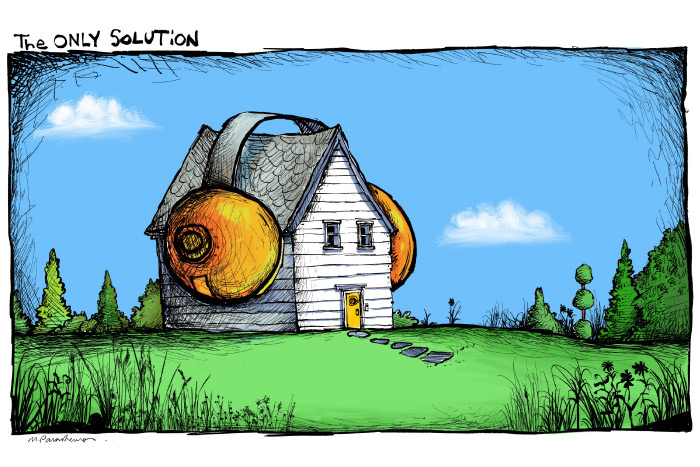Noise Fund: Loud Aircraft Landing at East Hampton Should Contribute

The State of New York, urged on by local officials, has just passed a law that will make it illegal to allow the East Hampton Town Board to seek funding for their airport from the FAA without first giving the townspeople 90 days to ask for a referendum on whether they want to allow that to happen.
The reason, it is said, is this. The Town doesn’t want to seek funds from the FAA anymore. But maybe some future town board might want to do that. This will give the townspeople the ability to prevent that, if they wish.
The real reason for this is because the town board has been completely bamboozled by the FAA time and again.
East Hampton owns its airport. People living around it are suffering from hearing damage because of the noise made by the planes and helicopters coming in and out. Ten years ago, when the Town wanted to pass laws to keep aircraft from coming in at night, they were told by the FAA they could not do that because the Town had accepted funding from them.
But, the FAA said, if the Town were to disentangle itself from the FAA, pay off all their obligations and not take future funding, they would be free to make such regulations.
So the Town did that. It took 10 years and great effort, but three years ago they were seemingly free. And so they passed some regulations. No planes at night. And no planes that made noises over 93 decibels at certain hours.
Whoops, the FAA said. You still can’t make regulations. Lawsuits were filed. And it went all the way up to the Supreme Court, but the Court declined to hear the petition from the Town of East Hampton. The regulations were rescinded.
In recent months, the Town has been toying with the idea of ASKING the FAA if they can make noise regulations. There is nothing to prevent the Town from asking, except it might cost up to $2 million in legal fees and costs to ultimately get the information to get those requests answered.
Guess what? The FAA, since 1990, has never said yes to any requested noise regulations at any airport in America—except once—for an airport in Naples, Florida.
This is nuts. First we make friends with them. Then they mislead us. Then they beat us up. And now we want to, at taxpayer expense, just ask them politely?
I have a better idea. I think the Town had better accept the fact that they are never going to be able to get noise relief from the airport.
Because living around the airport is noisy and likely to get noisier—airport folk have requested the re-opening of a second runway—and because the property value of these people is reduced due to their proximity to the airport, I propose we create a new nonprofit to reimburse homeowners for the difference between property value with the airport and without.
The charity, “We’re Noisy and We’re Sorry (WNWS),” would be presented to arriving aircraft pilots as part of their request for landing fees. I had originally thought they should just jack up the landing fees but there are limits on those. So I’m proposing WNWS. It would be a charity and, therefore, tax deductible.
For example, a pilot might come in to pay the landing fee, and receive this piece of paper.
LANDING FEE 1 HELICOPTER $150. OPTIONAL CHARITY DONATION FOR “WE’RE NOISY AND WE’RE SORRY” TO BENEFIT THOSE WHO LIVE AROUND THE AIRPORT. $100 OR ANY AMOUNT OF YOUR CHOICE.THANK YOU.
The funds gathered from this charity would be paid out monthly to those living around the airport. Those living within half a mile would get the greatest sum. Those living between half a mile and a mile would get the next greatest, and the amounts paid out would decrease the farther away from the airport that a family lives.
Such a monthly check—it might be $1,000—would raise the value of the property when the time comes that for the home to be sold.
And this might not be an exact parallel, but it would be similar to the fees offered by airlines to passengers if they want them to give up their seat because there is an overbooking. It’s an inconvenience. Here’s a piece of change.
I hope the Town considers this.









